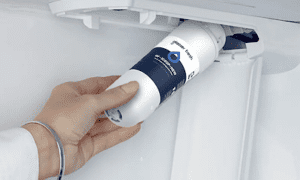Even though allergies, bacteria, chemicals, germs, smoke, viruses, and other microscopic particles are invisible to the human eye, the air that we breathe contains them.
All of this is inhaled, and it has a direct impact on our health. Therefore, the challenges of today necessitate modern solutions e.g. filter masks. Due to the emergence and increase of the latest COVID-19 pandemic, filter mask use has surged, despite the fact that most people are still unaware of what they are and why they are employed.
The filtration performance of a PM2.5 filter is a disposable component that improves the filtration performance of a mask, especially when you consider the tiniest aerosolized particles. When it is combined with a fitting cloth mask, a certified pm2.5 filter can block the great majority of airborne particles, including fine aerosols.
A pm2.5 filter + munnbind Norway (English Meaning is face masks in Norway) is the most protective option available when looking for reusable, breathable solutions for everyday usage. ISHOP offers you these CE-approved modern face masks to protect yourself from various viruses.
How does this PM 2.5 filter function?
A PM2.5 filter will work by forming an electrical barrier that traps small particles that cotton and polyester mask fabrics cannot successfully block all by themselves on their own.
In comparison to traditional fabric masks, the melt-blown material used in the pm 2.5 filter delivers greater sub-micron filtration, but with less resistance for inhalation than most other medical-grade respirators available like the n95 masks.
Quick summary of this PM 2.5 new filter masks:
- PM 2.5: It can filter fine particulate matter maximum size of 2.5 µm
- PM 2.5 filter: It is a cloth pocket having replaceable inserts of activated carbon filter
- Enough research results have not yet been discussed about the filtration efficiency of this PM 2.5 mask
- A few of these PM 2.5 filters currently are marketed as a very highly-efficient mask but do not achieve as much reduction of exposure as claimed
- Even some of the best masks can allow particulate transmission because of the ill-fitting design
- There is no guarantee that PM 2.5 filters will protect you against COVID-19 and people still prefer to use N95 or KN95 masks
- For all environmental situations and occurrences, the regulations and certification for filter masks might not be applied to these filter masks
- However, it may generally be also used as a protection measure against the current pandemic COVID-19 along with all other measures
Wearing any mask is preferable to not wearing one. Sure, PM 2.5 masks will not prevent you from this coronavirus. However, they can reduce your chances of becoming infected or infecting others.
Follow the WHO’s recommendations for mask use, as well as additional precautions such as social and physical separation, frequent handwashing by using soap or any alcohol-based sanitizer, also avoiding large groups of individuals, and so on.
Despite the fact that there is a paucity of study and current evidence in favour of anti-pollution masks such as PM 2.5 filter type of masks, however, we still feel that they are useful.



































